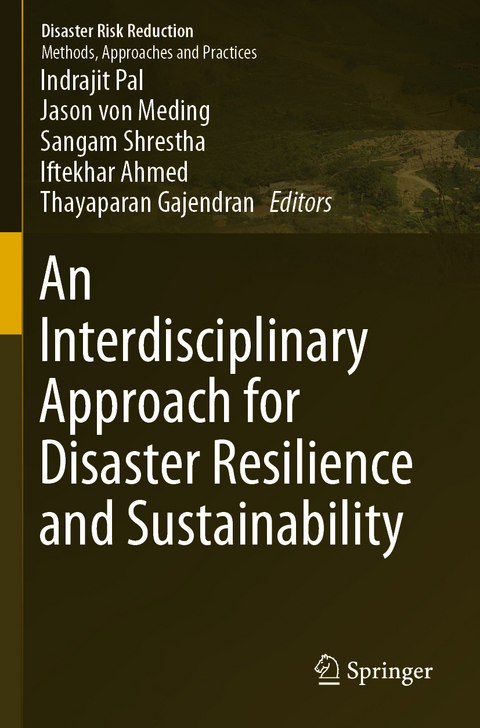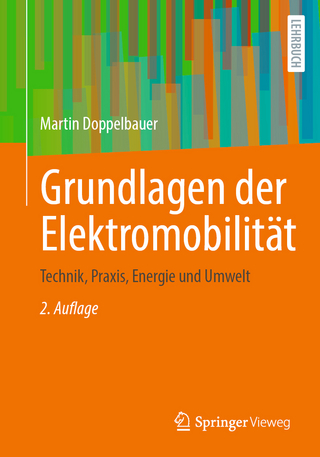
An Interdisciplinary Approach for Disaster Resilience and Sustainability
Springer Verlag, Singapore
978-981-329-529-2 (ISBN)
Traditionally, hazard and disaster-related studies have been dominated by the engineering and social science fields. In this regard, the main purpose of this book is to capture the multidisciplinary and multisectoral nature of disaster risk reduction, and to gather existing data, research, conceptual work, andpractical cases regarding risk reduction and its ties to sustainable development under a single “umbrella.” Along with the sustainability aspect, the book also links disaster risk reduction with development, technology, governance, education, and climate change, and includes discussions on challenges, solutions, and best practices in the mainstreaming of disaster risk reduction.
Dr. Indrajit Pal is an assistant professor at the Asian Institute of Technology, Thailand and has more than 16 years of experience in research, teaching, training, advocacy, consultancy primarily focused on disaster risk governance, incident command system, hazard and risk assessment, CBDRM, public health risk, disaster resilience, and DRR Education. Dr. Pal is supervising a number of Doctoral and Masters’ research across Asia and Africa in the field of disaster risk management and governance. Dr. Pal authored a number of peer-reviewed journal papers, conference paper, and books. Some of his ongoing research includes Disaster Resilience and Sustainable Development Education in Asia, Risk Characterization in Asian Delta communities in "Living Deltas" UKRI project. Dr. Jason von Meding is an associate professor at the University of Florida and founding faculty of the Florida Institute for Built Environment Resilience (FIBER). His research focuseson the social, political, economic and environmental injustice that causes people, across global societies but particularly in the developing world, to be marginalized and forced into greater risk of being impacted by disasters. He collaborates with a range of industrial and humanitarian partners as well as communities that experience complex challenges and threats, that sometimes manifest as emergencies and disasters. Dr. Sangam Shrestha has more than 15 years’ experience in conducting research, organizing regional and international policy dialogues, capacity building, and leading international and national research teams. He has been involved in research and development in the areas of climate change and adaptation in water, integrated water resource management, and groundwater development and management. His ongoing research includes developing an operational framework for river health assessment in the Mekong River Basin Consortium Research Program on Water, Land, and Ecosystems, among many other projects. Dr. Iftekhar Ahmed is a senior lecturer in construction management at the School of Architecture and Built Environment, University of Newcastle, Australia. His teaching chiefly focuses on built environment research methods, and on the policy and social dimensions of disaster risk management. He received his doctorate from Oxford Brookes University, UK; his Master of Science from the Massachusetts Institute of Technology, USA; and his Bachelor of Architecture from the Indian Institute of Technology, India. He has written several books and professional reports and has many peer-reviewed publications to his credit. Dr. Thayaparan Gajendran is an associate professor at the School of Architecture and Built Environment, University of Newcastle, Australia. His research focuses on sociological aspects associated with built environments in the context of construction project and disaster management. Dr. Gajendran has held numerous administrative roles at the school, faculty, and university level. He has authored and edited more than 60 publications including peer-reviewed journal papers, conference papers, conference proceedings, and industry practice books accompanied by diagnostic self-assessment tools.
Regional Perspectives on Disaster Resilience and Sustainable Development.- Earthquake Risk Assessment in Momase Region of Papua New Guinea using GIS.- Spatio-Temporal Variability of Landslides in the Sikkim Himalaya, India.- Geo Spatial Approach for likelihood damage assessment of buildings due to seismic hazard in urbanized areas.- Perspective of Science and Technology in Disaster Management and Mitigation.- Application of remote sensing & GIS in flood vulnerability assessment - A case study of Lower Ajay Basin, India.- Stable Isotopes and Groundwater Dynamics of the Shallow Ping River Alluvial System in Kamphaeng Phet Riverbank Filtration (RBF) Prospecting Site, Upper Central Thailand.- Risk identification, Assessment and Management of a Building Information Modelling (BIM) implemented project.- Identification of arsenic hazard locations and impact on children – A case study on Baruipur Block, South 24 Parganas, West Bengal.- Effect of Changing Vegetation coverage and Metereological Parameters on the Hazard Characteristics of Indian Sundarban Region and its Impact.- The study of the Impact of Wastewater from Outfall in River Ganga, West Bengal on the Growth and Morphological Parameters of Spinacia Oleracea.- Modeling of Flood Susceptibility and Risk Assessment based on GIS and Analytical hierarchy Process-A Case Study of Adayar River Basin, Tamilnadu, India.- Hydrological Modeling of Om Chhu (River) Basin of Phuentsholing, Bhutan Using SCS-CN Method.- Sustainability, Development and Disaster Risk in Rural Water Supply, Sanitation and Hygiene in Western Nepal.- Sustainable Development through Disaster Risk Management in India: A Case Study of Chandigarh.- Integrated Strategic Environmental Assessment: Nepal’s Earthquake Reconstruction & Sustainable Development Approach Addressing Environment and Disaster Risk.- Disaster resilient and sustainable development in Nepal (issues, challenges, opportunities, an experience of sharing of Himalayan country, Nepal).- Sustainable Development Through Public Private Partnership: An Approach to Eco-Tourism Hedging Risk to Disaster with Resilience.- Forest and disaster management: a view on North-East India.- Exploring the link between the role of power and procurement and supply chain management systems performance: A case study of International Non-Governmental Organization.- Manipulating Food Preferences for Promoting Sustainability and Reducing Disaster Risk.- Socioeconomic vulnerability assessment: A Case Study of Flood Prone Urban Communities of Pakistan.- Risk Governance and Informal Sector in Disaster Recovery: Case of 2015 Nepal Earthquake.- Cottage and Small Industries in Kathmandu District in the Aftermath of Nepal Earthquake: Preparedness and Lessons Learned.
| Erscheinungsdatum | 26.10.2020 |
|---|---|
| Reihe/Serie | Disaster Risk Reduction |
| Zusatzinfo | XII, 535 p. |
| Verlagsort | Singapore |
| Sprache | englisch |
| Maße | 155 x 235 mm |
| Themenwelt | Naturwissenschaften ► Biologie ► Ökologie / Naturschutz |
| Naturwissenschaften ► Geowissenschaften ► Geologie | |
| Naturwissenschaften ► Geowissenschaften ► Geophysik | |
| ISBN-10 | 981-329-529-5 / 9813295295 |
| ISBN-13 | 978-981-329-529-2 / 9789813295292 |
| Zustand | Neuware |
| Informationen gemäß Produktsicherheitsverordnung (GPSR) | |
| Haben Sie eine Frage zum Produkt? |
aus dem Bereich


